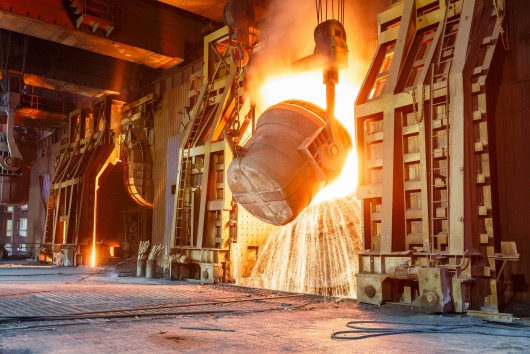How to decarbonise heavy industry: From quick wins to long-term solutions
23-03-2021

WATCH THE RECORDING HERE
The steel industry is a major contributor to the overall CO2 emissions worldwide, and, therefore, a significant driver of climate change. The sector generated about 2 billion tons of CO2 in 2018, according to the International Energy Agency, which is double the volume of 2000.
In recent years, we have seen many initiatives - from energy efficiency (waste heat recovery) and circular economy initiatives (e.g. slag treatment) to hydrogen - to decarbonise industrial processes and economic sectors where reducing carbon emissions is both urgent and hard to achieve. This includes heavy-duty and long-range transport and energy-intensive industrial processes, such as the iron and steel, chemicals, refining and cement industries.
Hydrogen is expected to play a key role in the future decarbonisation of the steel industry and other heavy industries. It can be used as a feedstock, a fuel or an energy carrier and storage, and has many possible applications across industry, transport, power and buildings sectors. Most importantly, it does not emit CO2 and does not pollute the air when used. It is therefore seen as an important part of the solution to meet the 2050 climate neutrality goal of the European Green Deal.
But in the short- and medium-term, governments and industries are looking more at circular economy and energy efficiency initiatives to drive down emissions from plants. How can policymakers create the right incentives to put both the 2030 and 2050 carbon targets within reach? And can this strengthen the EU industrial base at the same time?
Join this EURACTIV Virtual Conference to discuss the path towards the decarbonisation of the steel and other heavy industries, where the focus should be in the short- and medium-term, and what are the key enablers that we need to put in place.
You can read more about industrial decarbonisation here.
Supported by:

Location
Online
Panellists
Mette Koefoed Quinn, Head of Unit, ETS Implementation and IT, DG CLIMA, European Commission
Sirpa Pietikäinen, MEP, Member of ECON, Substitute of ENVI, European Parliament
Max Åhman, Senior Lecturer, Environmental and Energy Systems Studies, Lund University
Erika Mink-Zaghloul, Head of Government & Regulatory Affairs, thyssenkrupp Steel
Alexander Fleischanderl, Technology Officer Upstream and Head of Environmental Solution Business, Primetals Technologies
Moderator
Frederic Simon, Energy Editor, EURACTIV
Schedule
09:30 – 09:35 Welcome
09:35 – 09:50 Panellists' statements
09:50 – 10:40 Discussion and Q&A
10:40 – 10:45 Closing statements
Contact
Matea Krivanek
matea.krivanek@euractiv.com




